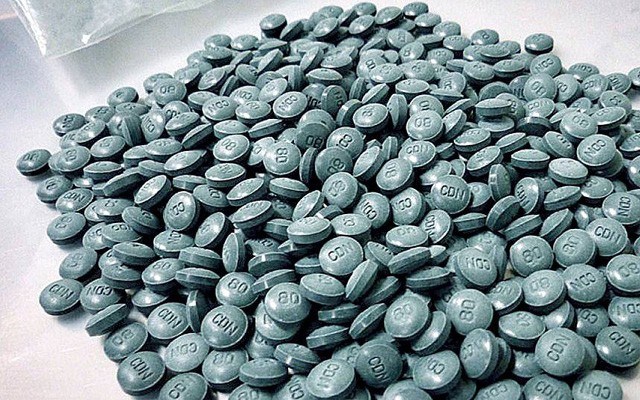A regional medical official is warning of the dangers of the synthetic opioid fentanyl after B.C.'s provincial health officer declared a public health emergency over a significant increase in drug-related overdoses and deaths.
Dr. Perry Kendall made the announcement last week, the first time he has enacted his emergency powers. The unlikely move will allow medical health officers throughout the province to collect real-time information from hospital emergency rooms, health authorities, the B.C. Coroners Service and first responders to help prevent overdoses and drug deaths.
"This is, frankly, a crisis," Kendall said at a news conference last Thursday, April 14, in Victoria. "These deaths have a serious impact on public health and the numbers are unusual and unexpected, which is the criteria for declaring such an emergency under the Public Health Act."
B.C. has seen a troubling spike in drug deaths over the past half decade, with a substantial number linked to fentanyl, a quick-acting narcotic sedative that is 50 to 100 times stronger than heroin. According to a B.C. Coroners Service report, there were 476 apparent illicit drug overdose deaths in B.C. last year, a 30.4-per-cent increase from 2014. Kendall predicts that number will climb to over 700 this year. Preliminary data also suggests fentanyl was detected in nearly a third of all drug deaths in 2015, compared to only five per cent in 2012.
"The cost (of fentanyl) has gone down and basically the supply has gone up, so we've got two factors working against us," said Dr. Paul Martiquet, Vancouver Coastal Health's chief medical officer for the Sea to Sky.
The corridor has yet to see the same spike in fentanyl use as the Lower Mainland — there has been only one recorded fentanyl death in the Sea to Sky in the past five years.
"We're trying to get the word out that that the fentanyl that's out there is killer and you have to be very cautious when you inject," Martiquet warned. "If anyone's experiencing an overdose, they should be taken to the emerg, where we have Naloxone that will treat and counteract the effects. We're just requiring everybody using an unknown product to be very cautious with it. Just use a little bit at first to see how strong it is and be very cautious."
In February, the province amended legislation to allow B.C. firefighters to administer Naloxone, a potentially life-saving drug used to counteract the effects of an overdose, as well as increasing the number of paramedics who carry it. At the time, the RMOW said the Whistler Fire Rescue Service has no plans to carry the drug.
In a vacation destination like Whistler, illicit drug use is always a concern, although Whistler RCMP's Staff Sgt. Steve LeClair said his detachment hasn't noticed a marked increase recently.
"For 2015-16, (cracking down on drug use) is one of our detachment priorities, but anecdotally I can't say that we're seeing a great increase in drug use,' he said.
But getting a true picture of drug use in Whistler can be a challenge, Martiquet added.
"We don't know what the tourists are doing, what the visitors to Whistler are doing, and it's a concern," he said. "We provide our services to everybody but we cannot say that we have the complete accurate picture on what we're seeing in terms of drug overdoses and drug use in the Sea to Sky corridor."
The corridor sees an average of seven emergency room visits a year due to overdoses and drug-related complications, Martiquet said.




